Space
Sign up for our newsletter
We summarize the week's scientific breakthroughs every Thursday.
-
 Astronomy
AstronomyPulsars may power cosmic rays with the highest-known energies in the universe
Earth is pelted by energetic particles from space. The source might be the magnetic remains of massive stars, a new study suggests.
By Liz Kruesi -
 Cosmology
CosmologyA century ago, Alexander Friedmann envisioned the universe’s expansion
Alexander Friedmann saw that Einstein’s equations predicted multiple cosmic scenarios, including a Big Bang.
-
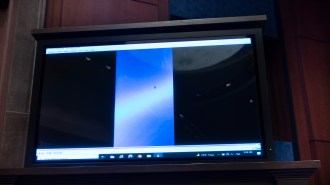 Science & Society
Science & SocietyWhy some scientists want serious research into UFOs
Science grapples with unknown phenomena all the time. Investigating UAP and whether they're related to aliens shouldn't be different, researchers say.
By Liz Kruesi -
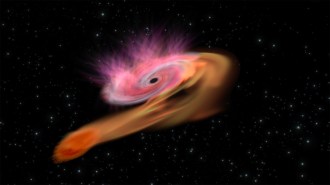 Particle Physics
Particle PhysicsHigh-energy neutrinos may come from black holes ripping apart stars
Where extremely energetic neutrinos originate from is a mystery. A new study supports the idea that “tidal disruption events” are one source.
-
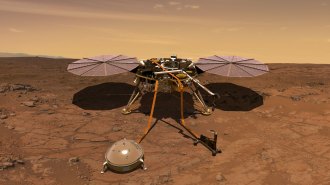 Planetary Science
Planetary ScienceNASA’s InSight lander has recorded the largest Marsquake yet
The magnitude 5 temblor, detected May 4, will help scientists learn more about the Red Planet’s interior.
-
 Astronomy
AstronomyWe finally have an image of the black hole at the heart of the Milky Way
Observations from the Event Horizon Telescope reveal the turbulent region around our home galaxy’s black hole, Sagittarius A*, in new detail.
By Liz Kruesi and Emily Conover -
 Astronomy
AstronomyThe sun’s searing radiation led to the shuffling of the solar system’s planets
As the young sun’s radiation evaporated gas from its surrounding disk, it triggered a jumbling of the giant planets’ orbits, simulations suggest.
By Liz Kruesi -
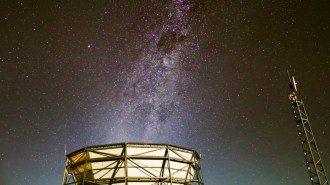 Space
Space50 years ago, scientists had hints of a planet beyond Pluto
In 1972, calculations from Halley’s comet offered evidence of another planet. Today’s astronomers are still searching for a Planet Nine.
-
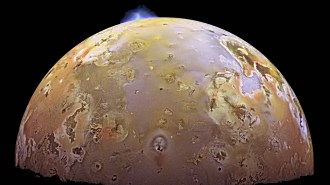 Planetary Science
Planetary ScienceLava and frost may form the mysterious lumps on Jupiter’s moon Io
Jets of gas released when hot meets cold on the volcanic moon Io could generate sprawling fields of dunes, a study finds.
By Nikk Ogasa -
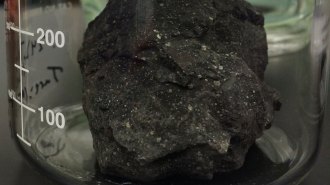 Space
SpaceAll of the bases in DNA and RNA have now been found in meteorites
Scientists have detected adenine and guanine in meteorites for decades and seen hints of uracil. But cytosine and thymine had remained elusive.
By Liz Kruesi -
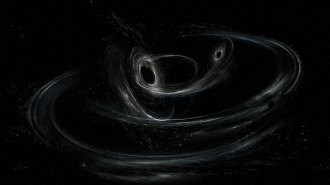 Physics
PhysicsGravitational waves gave a new black hole a high-speed ‘kick’
Ripples in spacetime revealed that two black holes united into one, which then sped off at around 5 million kilometers per hour.
-
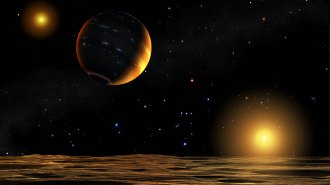 Astronomy
Astronomy‘Goldilocks’ stars may pose challenges for any nearby habitable planets
Orange dwarfs emit far-ultraviolet light long after birth, stressing the atmospheres of potentially life-bearing worlds.
By Ken Croswell